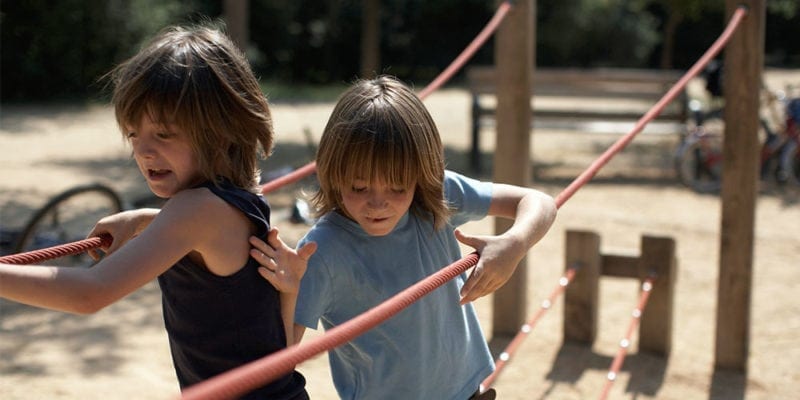A friend of mine is the mother of two sweet kids, a nine-year-old boy and an eight-year-old girl. Several years ago she was driving with the kids in the back seat when all of sudden she heard her daughter whisper to her son, “I want to punch you RIGHT IN THE FACE.”
Sibling rivalry is very real. Teaching your children to love their brothers and sisters is important to having well-rounded children and a happy home. Looking for ways to cultivate this love can be hard, but it’s possible. You have a big influence. Here are 7 ways to help your children love each other.
1. Set an Example
Children pay attention. If you love others, they will follow your example. Demonstrating negative behaviors such as fighting or name-calling will be replicated by your little ones. But, don’t place the blame on yourself for your children’s quarrels. Your example is important, but it is not all they are influenced by.
2. Love them Equally
Like number one, demonstrating love to your children is a way to teach them to love. Showing them love, equally, will keep them from feeling jealous, which gives them the ability to love freely. If they feel loved, they will show love to others.
3. Teach them Patience
Patience is a virtue. It’s not easy to come by, but requires self-control and understanding. Especially for older siblings, patience can wear thin and frustration can take over. By teaching patience, children will have a greater understanding and tolerance for their “annoying” siblings.
4. Cultivate Playtime
Playing together is the perfect way to cultivate loving relationships. Play is how children learn social skills. When they have fun together, they are learning about each other and how to relate. Of course, siblings’ playing leaves the potential for nearly disastrous moments, but those are when you, as a parent, can step in and mediate a situation.
5. Teach them to Share
Sharing toys, activities, or friends is another great way to teach them to love one other. Once they’re in something together—spending time, creating memories, and becoming involved with other—they will learn to love and appreciate each other. They will learn to act as a team.
6. Create Bonding Experiences
Teach them to depend on one another. Give them chores to do together. Bonding activities will help them to rely on each other. This dependence is a sign of love. It makes them realize they’re not alone. They need each other.
7. Teach Them Selflessness
Children have a concept that their things are truly theirs—whether toys, friends, or space. But teaching them that their stuff is less important than people is teaching them love. Instruct them to put others first in all things. Doing favors, helping with their sibling’s chores, or spending time together are all good examples of selflessness. Exemplify these traits and continue to enforce them in your home.











Huddle up with your kids and ask, “What can you do this week to love one another?”